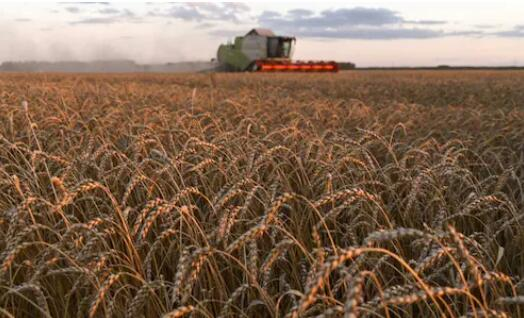
Exhibition time: 17-19 March, 2026 Shanghai, China
 中文
中文

Exhibition time: 17-19 March, 2026 Shanghai, China
 中文
中文

Key words of the passage: crop; production; food; supply
Global commodity markets were thrown into turmoil when Russia sent troops to Ukraine on February 24 in the face of repeated warnings and threats of stricter sanctions from the West. The crisis sent prices of commodities ranging from oil and gas to wheat higher, while stock markets across the globe plunged.
Trade will be further stifled as fund flows dry up following sanctions on Russian banks by the US and UK for Moscow’s “unprovoked” attack. Some European banks have imposed restrictions on finance for commodity trade from Russia and Ukraine.
Two European banking giants, ING Groep NV and Rabobank, are imposing restrictions on lending for deals involving movement of commodities from Russia and Ukraine, Bloomberg reported. The commodities trading industry has for decades depended on short-term finance from international banks. Disruption of fund flow is likely to impact shipment of metals, agricultural products and energy around the world.
As the crisis takes a turn for the worse, supply chains are likely to get disrupted, adversely affecting countries in Asia because most economies in the continent are net oil importers, a Nomura report said. India, Thailand and Philippines are likely to be the biggest losers of the ongoing crisis, the report said.
Ukraine is considered the ‘breadbasket of Europe,’ and the crisis would mean the food supply chain being “hit hard,” CNBC quoted Alan Holland, CEO and Founder at sourcing technology company Keelvar, as saying.
Source: cnbctv18
